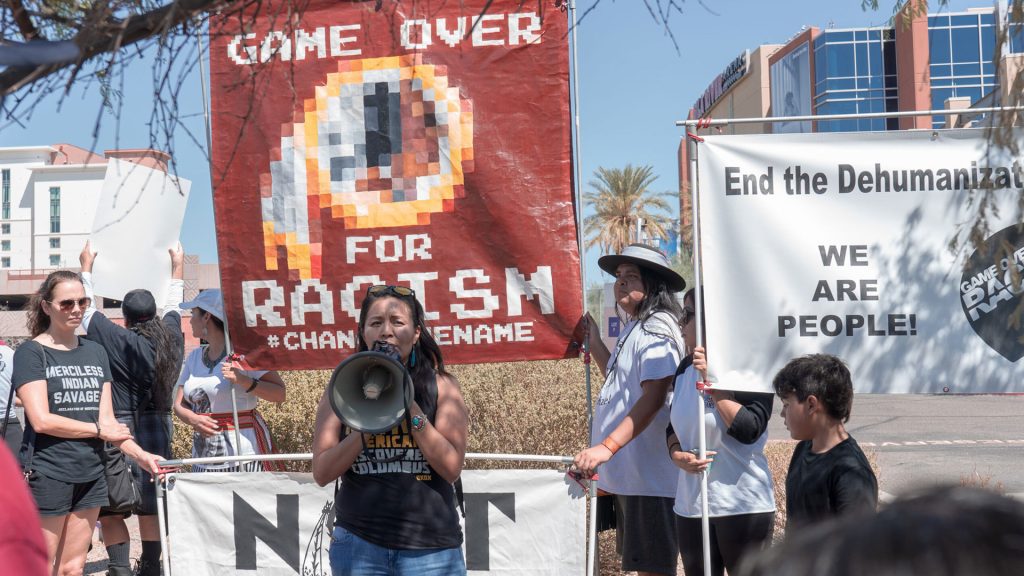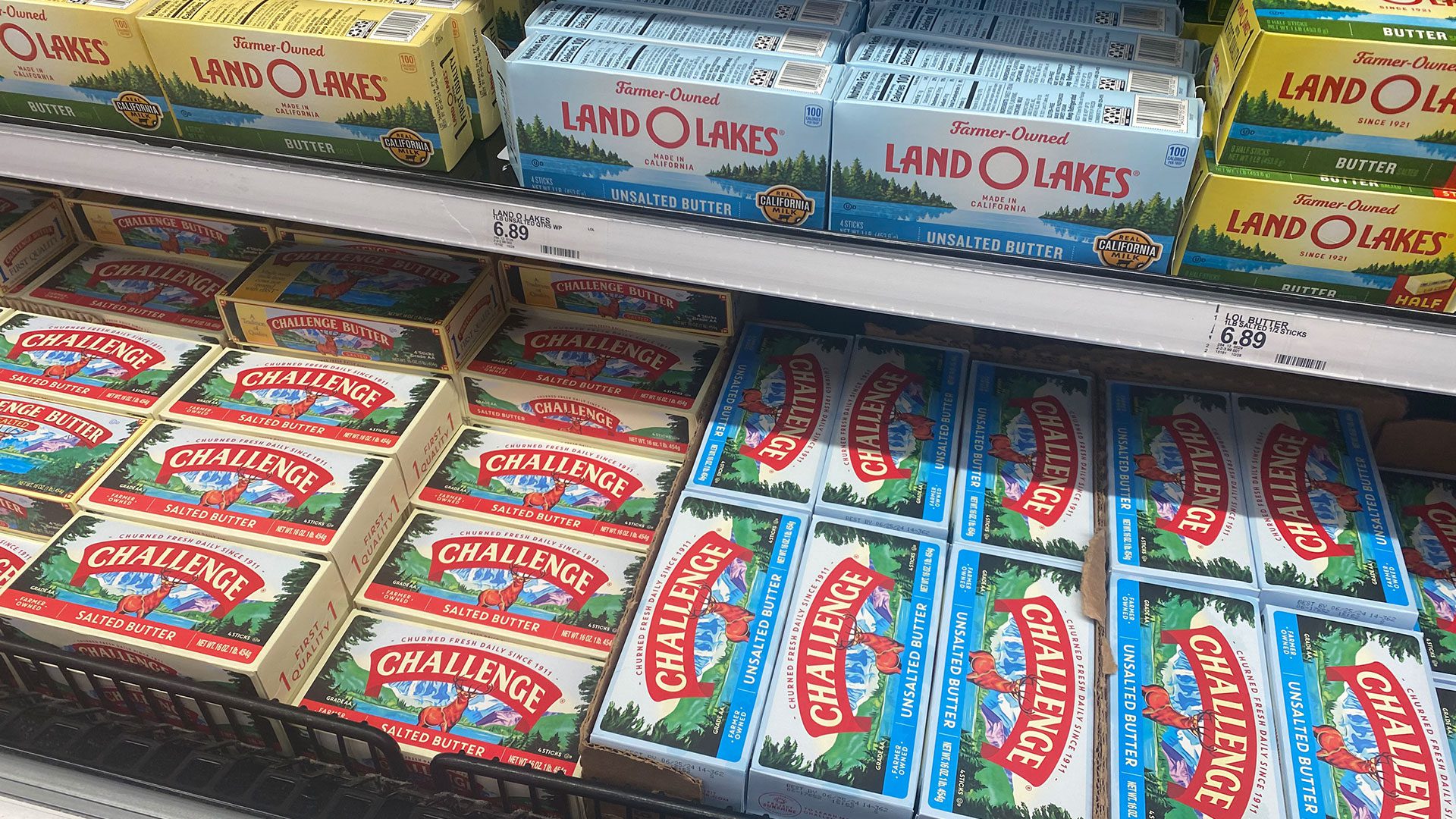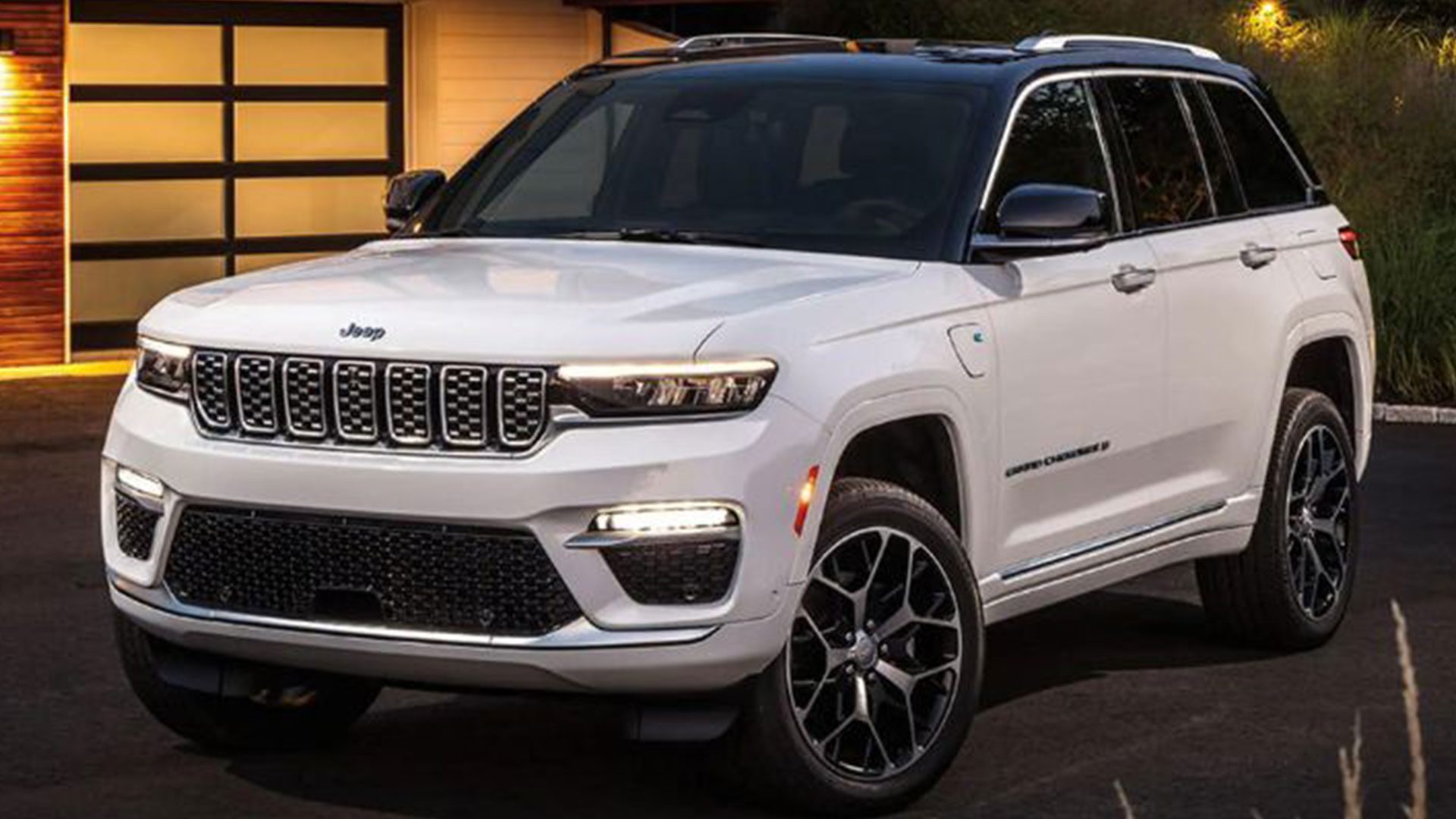
Arizona rally against Native mascots in Phoenix. Photo: Supplied
A hard-hitting documentary about the movement to end Native American mascots is now available to stream at home.
“Racism is racism,” says Oklahoma activist Gaylene Crouser in Imagining the Indian: The Fight against Native American Mascoting.
“It’s like being a little bit pregnant. You’re either pregnant or you’re not. It’s either racist or it’s not.”
The 95-minute documentary that debuted in 2022 has been racking up awards on the film festival circuit for its look at the fight to stop the use of Native American names, images and culture in sports.
It was released on DVD and for a streaming audience ahead of the recent Super Bowl where Crouser participated in a protest against the Kansas City Chiefs.
“There are so many tribes over the last years that have put out letters saying mascots are terrible,” says Crouser, the Sioux founder and executive director of the Kansas City Indian Center, in an interview with APTN News.
“Unfortunately, we’re the last race of people that it is still socially acceptable to be racist to.”

The documentary interviews prominent Native Americans about the Not Your Mascot movement, which is aimed at Native American-themed names in hockey, baseball, basketball and football.
The problematic team names usually refer to tribal nations like the Sioux or categories of people like chiefs, warriors and braves.
Several teams, including Kansas City, claim they are “honoring” Native Americans by using their traditional names and symbols. But that doesn’t wash with Rhonda LeValdo, who is Acoma Pueblo.
“It’s cultural appropriation,” says the founder of Not In Our Honour – the group that organized the Super Bowl protest in Las Vegas, “and it’s harming our children.”
The documentary explains how mascots and the racist stereotypes they promote affect the mental health of Native American youth.
The American Psychological Association called for the retirement of all Native-themed mascots in 2005.
“We’re trying to let people know [that]: No, it does not honour us. We’re not buying into this,” LeValdo tells APTN.
“We think it’s a tone-deaf thing that they’re doing trying to make it sound like, ‘Oh, we’re helping out people.’ And they’re not.”

The documentary was directed by Aviva Kempner and Ben West, and co-produced by Kevin Blackstone of Shadow City Films. Blackstone is also a sports columnist with the Washington Post, where he covered the battle to change the professional football team’s name.
He told a podcast on the documentary there are offensive team names in baseball, basketball and hockey. And while high schools and colleges are changing their names, he said professional sports leagues continue to lag behind.
One university that addressed its use of Native American imagery is Florida State. In 2005, it formed a partnership with the Seminole tribe of Florida to provide scholarships, consult on imagery and collaborate on issues of mutual interest.
LeValdo, who is featured in the documentary along with Crouser, says Kansas City and the National Football League [NFL] have never responded to her group’s concerns.
The team and league did not reply to APTN’s requests for comment.
Kempner told the podcast that Dan Snyder, owner of the Washington NFL franchise, defended his team’s controversial name by citing a survey of Native Americans that weren’t offended, which she said has now “been proven bogus.”
Joely Proudfit, professor and chair of American Indian Studies at California State University San Marcos, tells the documentary it’s time for Native Americans to take control.
“It’s up to Native people to own their own images, to own their own words, and to be able to own their own feelings,” she says.

Crouser says she’s sick of seeing her heritage used to promote sports, retail products and movies.
“Whether we’re talking about butter or chewing gum or cigar store Indians or cartoons. If [you] really, really want to understand the issue, [this documentary is] a great place to start.”
The Cherokee Nation has twice asked the makers of Jeep to stop using the tribe’s name on its SUVs, according to tribe member David Cornsilk, a professional genealogist.
Principal Chief Chuck Hoskin Jr. made headlines in 2021 when he released a statement saying it “does not honor us by having our name plastered on the side of a car.”
Jeep has been using the name for more than 45 years.
“I think we’re in a day and age in this country where it’s time for both corporations and team sports to retire the use of Native American names, images and mascots from their products, team jerseys and sports in general,” Hoskin Jr. said in the statement.
Cornsilk says former chief Ross Swimmer had “direct conversations” with the manufacturers of Jeep Cherokee in the 1980s, asking them to change the name, not use “negative stereotyping images”, and “potentially provide some financial relief to Cherokee such as a scholarship.”
Read more: Native American groups prepping for Super Bowl protest
Stellantis, which now owns the Jeep brand, did not reply to an email seeking comment from APTN. Neither did Hoskins.
Cornsilk, who does not speak for the Cherokee government, says the tribe was also rebuffed by the Cherokee clothing brand in the 1980s.









